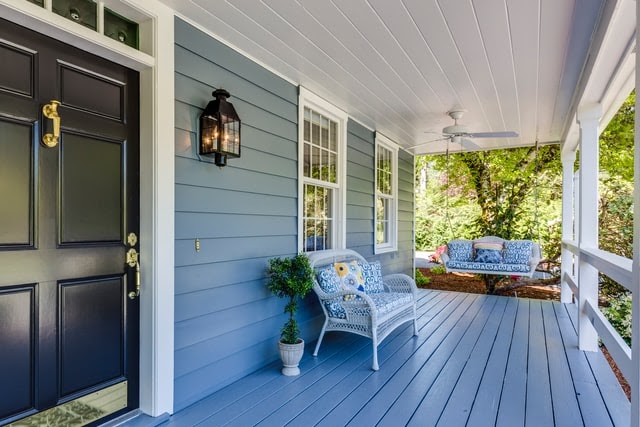How much house can you really afford? With rising rent prices, this can be a little bit of a hot-button topic. Financial gurus and thrifty spenders weigh in with many different opinions. But what matters is what the bank is willing to lend you and what you can swing, not just on paper but in real life.
When you own a home, your mortgage includes four different components. When you rent, your monthly payments go a bit further and take care of everything from lawn care to maintenance. Homeowners are shelling out extra for these costs, but at the same time, they are building equity in their property.
What is Important to the Bank When Qualifying for a Mortgage
Determining how much house you can afford isn’t as straightforward as calculating a percentage of your income. Most banks and mortgage lenders will look at a few different numbers to make sure the numbers add up forwards, backward, and all the way around. Here are some things that they look at:
- Value of home compared to your annual salary.
- Percentage of income that goes towards your mortgage payment.
- Percentage of your total annual income that goes towards debt.
Related Link: Can I Buy a Home with No Money Down?
The 4 Parts of a Mortgage Payment
A mortgage payment is more than just paying back the loan for the house. The principal of the mortgage is the outstanding balance of the amount borrowed to purchase the home. The interest is the cost of borrowing that money. Property taxes from local governments, homeowners insurance, and sometimes private mortgage insurance are also part of a traditional mortgage payment.
How Lenders Determine How Much You Can Borrow
As a starting point, most lenders are comfortable signing off on a mortgage that is within 2 to 2.5 times your salary. However, individual financial profiles, including outstanding debt and credit scores, may affect this guideline. While there are special programs for less-qualified individuals, all lenders use good-faith criteria to determine a borrower’s ability to repay the mortgage.
Related Link: What You Should Know About Financing with a HARP Mortgage
Lenders use two numbers to calculate a more accurate picture of your individual financial situation. The first is called the front-end ratio. This number calculates what percentage of your annual income will go towards your mortgage payment. For most lenders, this number should not exceed 28% of your income.

The second number that lenders use is called a back-end ratio. This is the percentage of your gross income that covers outstanding debts. These debts include things like credit card balances, child support, auto loans, and other types of loans aside from your primary mortgage. Your debt should not exceed 36% of your annual gross income.
Let’s talk more about your personal financial situation. Contact the “loan brothers” at Mares Mortgage today.
Personal Considerations to Determine How Much You Can Borrow
The lender can show you your financials on paper based on your reportable income and outstanding debts. But that is where the lender’s advice stops. Even if you can afford the payments on your dream home, swinging big might affect your lifestyle, personal preference, and other costs of homeownership.
Related Link: 580 Credit Score Home Loans…
The Cost of Maintaining Your Lifestyle
Are you the type of person that likes to spend big, play often, and travel willingly? Will you be able to handle the payments on your dream home while maintaining your current lifestyle? Are you willing to make compromises to afford more house? Or, would you prefer to shop conservatively on a home in order to enjoy a larger budget for shopping, travel, and other lifestyle choices?
Personal Approach to Debt
Some people are uncomfortable with debt and choose to carry minimal amounts and work hard to pay them off quickly. Other people are comparatively very comfortable with debt, seemingly having no problem carrying high balances on credit cards or maxing out home purchases at the top of their budget. How comfortable you are with debt and how much debt you currently have will determine how much home you can afford.

Personal Financial Goals
As different as our approaches to managing our finances are, the intricacies of our lives differ as well. Some families will prioritize paying for the children’s college over the upkeep on extra square footage. Some families forego children altogether, leaving more money to put towards real estate.
Finding a balance between how much you can afford and how much you want to afford is the key to budgeting when shopping for a new home. The lender may agree to terms that, on paper, look good. But when factoring your personal lifestyle choices into the equation, the same amount of house will leave you “house poor.”
Points to Remember
When it comes to determining what percentage of your income should go towards a house payment, there are some common baselines. Most people can afford twice their annual gross income. That is, as long as their anticipated mortgage payment will not exceed 28% of their income and their debt does not exceed 36% of their income.
Beyond working out the math, your individual lifestyle choices will play a bigger role in determining how much house you can afford. It is better to identify a range of home prices you are comfortable with and shoot for the low-end of that range.
If your dream home comes along and it’s a little higher than your budget, there is wiggle room to play with. Although the bank may be willing to sign off on up to 28% of your income, you are the one who has to make the payments. Being “house poor” or tying up all of your money in a nice house without being able to afford the lifestyle to go with it is not a situation anyone wants to find themselves in.
Are you ready to start shopping? Get pre-qualified with Mares Mortgage today and see where you stand.

